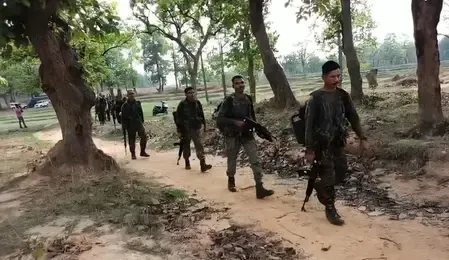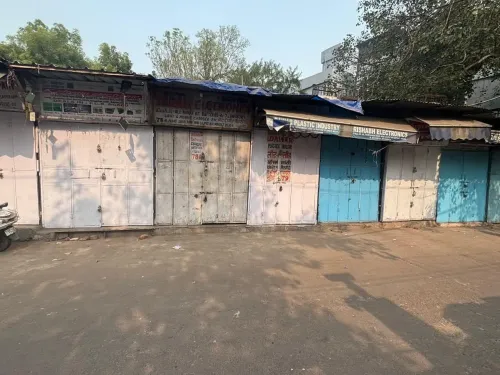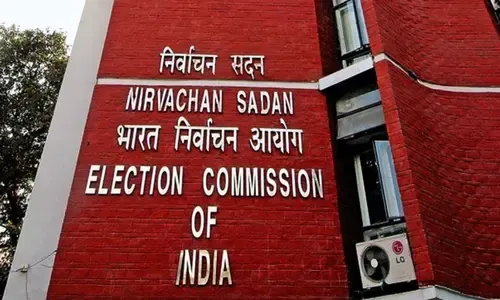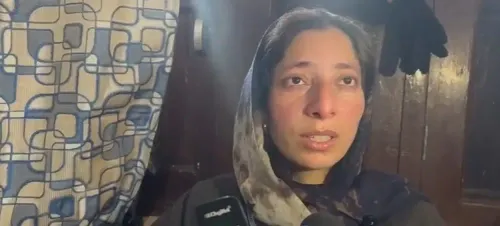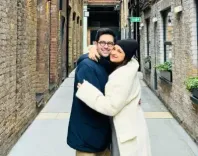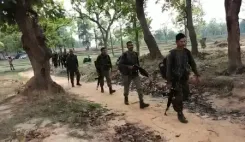Former Diplomat Highlights Challenges in Extraditing Hasina Amid Politically Driven Charges
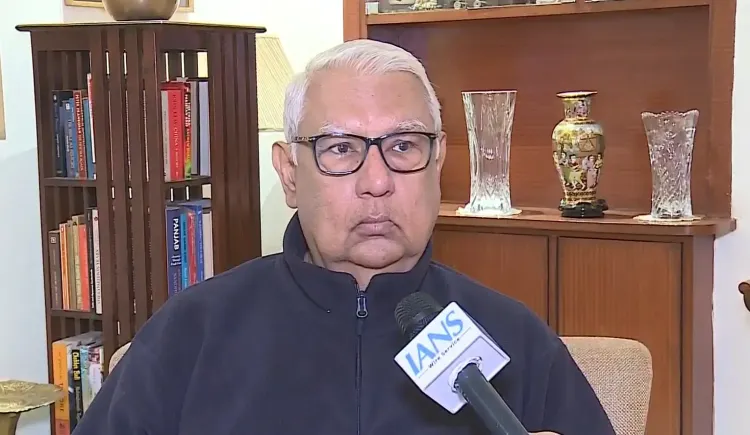
New Delhi, Dec 24 (NationPress) Analysts suggest that even with a bilateral extradition treaty in place, it appears quite improbable that New Delhi will respond favorably to Dhaka's request for the extradition of Sheikh Hasina, the former Prime Minister of Bangladesh, who had to escape the nation under disgraceful circumstances and seek sanctuary in India on August 5 of this year.
"Extradition treaties define extraditable offenses, and political offenses are typically exempt. Therefore, there will be scrutiny regarding whether this case qualifies as a political offense, particularly since Hasina is not a convicted criminal. The situation becomes even more intricate as she was forced to leave by the military, a state institution. How can one compel someone to flee the nation and then pursue their extradition? This situation is bound to present numerous legal challenges," stated Pinak Ranjan Chakravarty, India's former High Commissioner to Bangladesh, in an interview with IANS on Tuesday.
The interim administration in Bangladesh, led by Chief Advisor Muhammad Yunus, declared on Monday that it has dispatched a diplomatic communication to the Indian government, requesting the extradition of Sheikh Hasina.
"We have notified India. Our request for Sheikh Hasina's repatriation for judicial reasons has been submitted through a note verbale (diplomatic note)," mentioned Touhid Hossain, the Foreign Affairs Advisor of the interim government.
The Home Affairs Advisor, Lt. Gen. (Retd.) Md. Jahangir Alam Chowdhury, also affirmed that his ministry had reached out to Hossain's office to expedite the return of the ousted Prime Minister from India.
"We have written to the foreign ministry regarding her extradition. The process is currently in progress. They have an extradition agreement with us," said Chowdhury.
Nevertheless, legal experts believe that the extradition request may lack substance as it appears to be primarily politically motivated.
"Numerous legal procedures must be followed in such scenarios. At this moment, we have merely received a letter, and I am uncertain whether any accompanying evidence has been provided. Although they have brought multiple cases against Sheikh Hasina, there has been no conviction. They expect us to surrender their former PM and subsequently initiate legal action against her. The process for addressing extradition requests is extensive. The Ministry of External Affairs (MEA) has a legal entities division that manages these matters. Therefore, I anticipate that everything will be scrutinized thoroughly before any decisions are made. The extradition process is often lengthy, as is seen in the US and UK. We have a similar system," stated Ambassador Chakravarty.
The experienced diplomat, who has held positions in Thailand, the Philippines, and various other nations, believes that if the Indian government chooses to do so, it can reject the extradition request if it is deemed legally unsustainable under the treaty and politically motivated.
"They must present some evidence to India, which, at this point, seems to be absent. For extradition to occur, a judicial magistrate's order is required along with supporting evidence. Furthermore, any ruling can be contested in a higher court. All of this, as you are aware, is time-consuming," added Chakravarty, a former officer in the Indian Foreign Service.
"It is common knowledge that there has been considerable animosity between Prof. Yunus and Sheikh Hasina. She can remain here as long as the Indian government permits. This has occurred previously when she resided here for several years following the massacre of her family. We have never denied refuge to anyone in India. The Dalai Lama continues to reside in India," he concluded.

